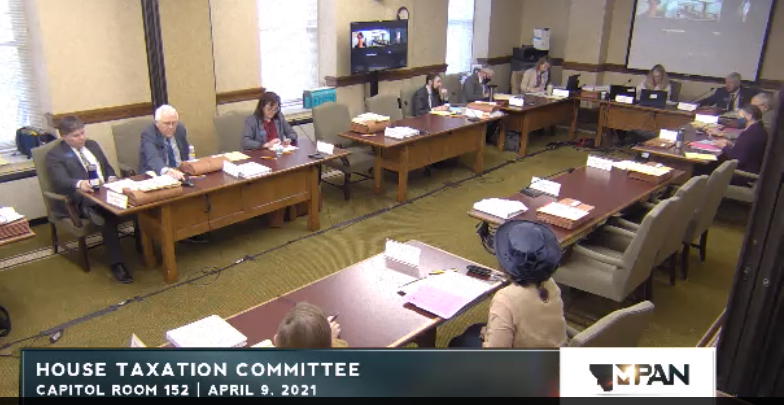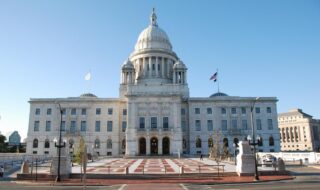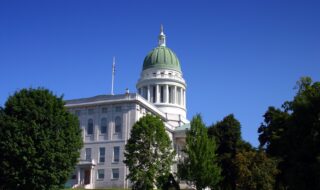April 10, 2021
Montana Tax Changes Hinging on Federal, Court Decisions
State Director Ronda Wiggers reports from Helena on the small-business agenda for the legislative and political week ending April 9
We are now at the point in the session when we attempt to guide our bills across the finish line and have some input in the conference committee decisions. The Senate put its mark on House Bill 2, the state budget, and now the House will reject their amendments, sending it to a conference committee to iron out the details. All of the companion spending bills will then follow behind.
House Bill 628, appropriating the COVID-19 recovery funds, has been heard in the Senate Finance & Claims Committee. The committee will make its suggested changes to it in the next few days, and it will follow the same route as HB 2. This bill is requiring a little extra wordsmithing, as the federal guidelines have not yet been published. Committee members need to create a plan that is both flexible enough to react to the final guidelines and with enough sideboards that the legislative branch feels they have some control over how the money is allocated.
And those federal guidelines bring me to our tax bills. An amendment was added to the federal legislation that forbids a state to lower taxes if they take the COVID-19 recovery funds. Ohio has challenged this in court and many states, including Montana, have joined that lawsuit. NFIB has also filed an amicus brief in the case. However, as it stands right now, our tax cut bills are in limbo. The rumor in the halls – and at this point in the session, there are more rumors than people – is that we will go ahead and pass the tax bills with contingency clauses. What this means in real people language is that the tax cuts will become effective either when the federal government reverses its position; the courts rule in our favor; or the clock runs out on the COVID-19 funds. There is a possibility that we do not actually see any of these tax changes for three years!
I do not believe we have any bills left on our list that will have another hearing or require testimony. It is now all about rallying the final vote on the floor, monitoring the activities of the conference committees, and encouraging the governor to sign.
NFIB-Supported Bills Still in the Process
- HB 303, Revise business equipment tax laws: Business Investment Grows (BIG) Jobs Act – this is part of the Gov. Greg Gianforte’s Montana Comeback plan that increases the exemption to business equipment taxes from $100,000 to $200,000.
- SB 159 Personal Income Tax Relief Act – this is also part of the governor’s tax plan and reduces the top income tax bracket from 6.9% to 6.75%. The House Tax Committee amended the bill to reduce the rate to 6.5%, but it is now sitting in the committee waiting to learn how it fits in the final tax package.
- SB 182 Generally revise laws on state finance, reducing tax rate if condition met – also part of the governor’s tax package. This is the “trigger bill” that sets parameters for continuing to lower the top income tax rate until it reaches 5%. It has passed the Senate and 2nd reading in the House.
- SB 260 Generally revise laws related to property interests and transfer of businesses – this is a bill that guarantees a business is reimbursed for government-takings, even if it does not result in 100% loss or involves a license or intangible property. It is waiting for 2nd reading on the House floor.
- SB 399 Generally revise and simplify income tax – this bill simplifies Montana’s tax return and bases our taxable income on the federally adjusted amount. It lowers the top tax bracket to 6.5%, but it also eliminates a number of tax credits and makes tip income taxable as it is at the federal level. It has passed the Senate and is beginning its tour through the House. It does not conflict with the governor’s tax package and is being carried by the same sponsor.
Legislation NFIB is Monitoring
NFIB took no official position on the following bills during the session for a variety of reasons. I will monitor these and report the final outcome so that you are aware of potential changes to the law that may affect your business.
- HB 158 Create study commission to review COVID-19 statute & rule suspensions – this study will look at the emergency rules that were put in place and determine if some of them should be allowed to remain. This bill was amended in a Senate committee so it will need to first pass the Senate floor and then return to the House to have the amendments accepted.
- HB 472 Revise liability under the consumer protection act – this bill limits treble damages in a civil liability action (under the consumer protection act) to only awards of less than $100,000 and dis-allows attorney fees if over $100,000 is awarded. This bill was heard in the Senate Business Committee and the attorney on the committee wrote an amendment to clean up and clarify the language a bit. It is now waiting for executive action.
- HB 555 Revise civil liability laws on personal property exempt from execution – this bill increases the value of personal property that is exempt from a judgement to adjust for inflation. This has passed both the House and the Senate and been returned to the House with a friendly amendment. The House will need to vote to accept.
- HB 624 Establish a business task force on child care – this was heard in the Senate Business Committee and is awaiting committee action
- HB 629 Provide for job creation tax credits – this would provide a tax credit for businesses that increase their employee count by 10 in the first year and 15 in the second year for job positions that pay at least $50,000 per year and are in the sectors of construction, natural resources, mining, agriculture, forestry, manufacturing, transportation, utilities or outdoor recreation. For counties with populations of less than 20,000 the job growth requirement is five the first year and seven the second year. This bill has passed the House and is just beginning its travels thru the Senate.
- HB 632 Implement receipt of and appropriate federal stimulus and COVID-19 recovery funds – this bill will likely have a number of changes before its final version. It has been through the process in the House and had its committee hearing in the Senate.
- SB 184 Montana Entrepreneur Magnet Act – the final bill in the governor’s tax package – has passed both the Senate and the House and been returned to the Senate for approval of the House amendments.
- SB 361 Generally revise laws to establish a certificate of rehabilitation – this was heard in House Judiciary over two weeks ago and is still awaiting committee action. NFIB has opposed versions of this bill in the past. This session, it has been watered down enough that it simply allows a convicted criminal, who has served their time, to apply for the certificate and does not require an employer to do anything out of the ordinary.
- SB 367 Generally revise labor laws relating to independent contractor certification – in the past, the state Department of Labor has determined that if there is no independent contractor (IC) certification, you are absolutely an employee. This conflicts with case law, and this bill proposes to say that it is NOT absolute proof and that other factors may be considered. It also moves the burden of proof to the person claiming to have an IC certification, rather than on the employer. It has passed the House with amendments, so it will need to go back to the Senate for approval of the amendments.
The above 14 bills will keep us busy for the next few weeks. Legislators officially have 22 days left to finish their work. Adjournment is scheduled for May 11. However, that rumor mill, remember them from above, is indicating we may be done by May 1. Having done this for a number of sessions, I know not to make plans based on the rumor of an early out.
Previous Reports and Related News
- February 1—Governor Releases ‘Montana Comeback Plan’ – NFIB-backed Liability Protection Bill Advances
 Photo snip courtesy of the Montana Public Affairs Network
Photo snip courtesy of the Montana Public Affairs Network
NFIB is a member-driven organization advocating on behalf of small and independent businesses nationwide.
Related Articles













